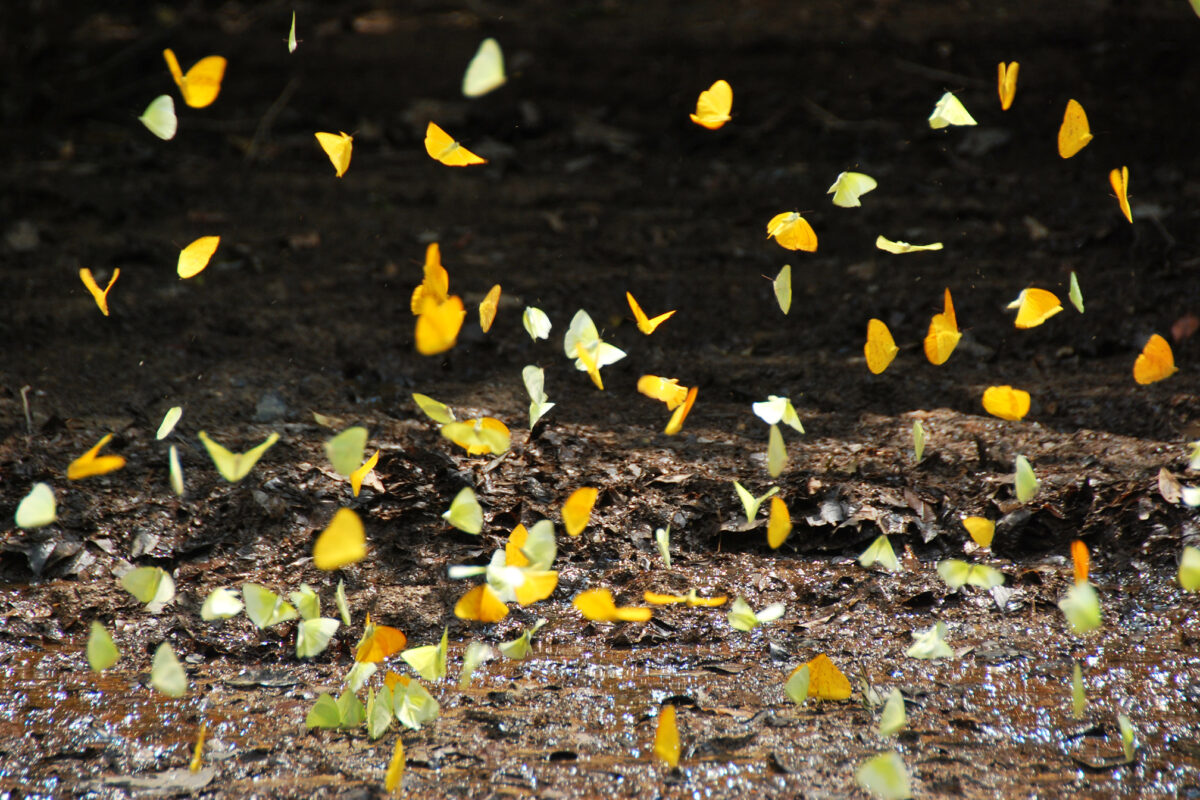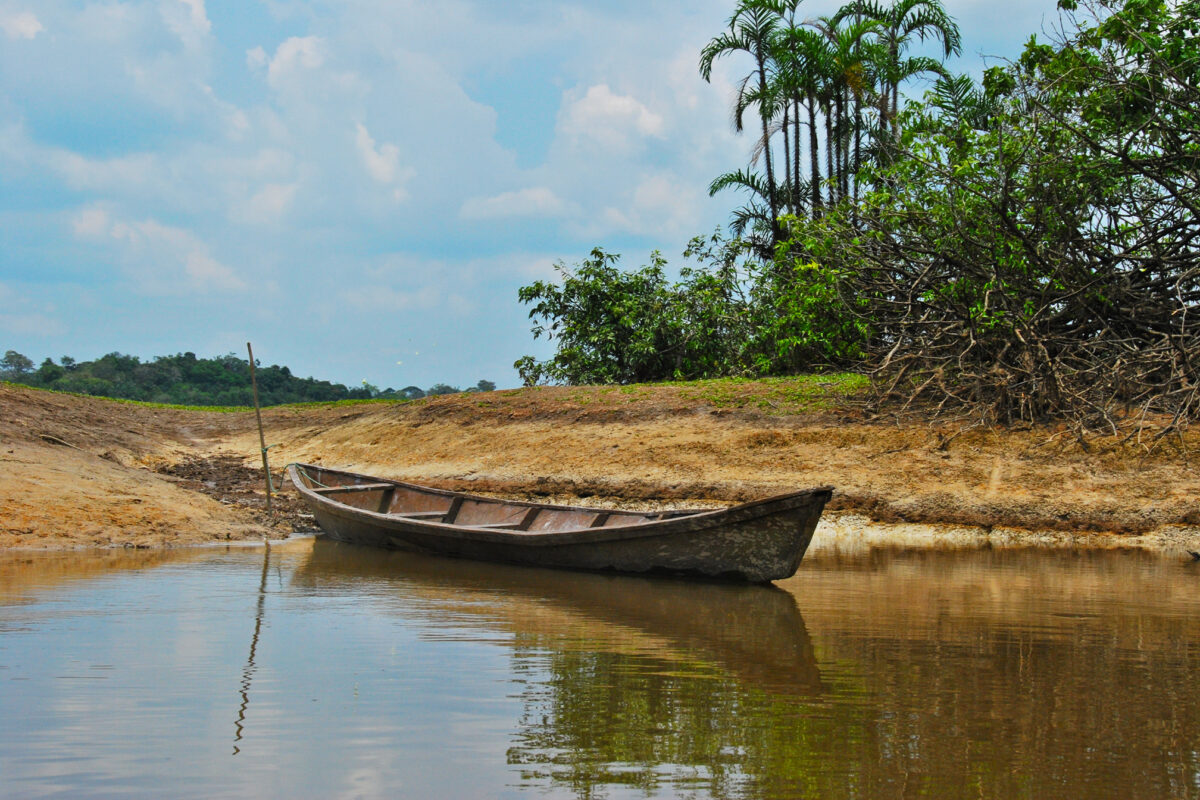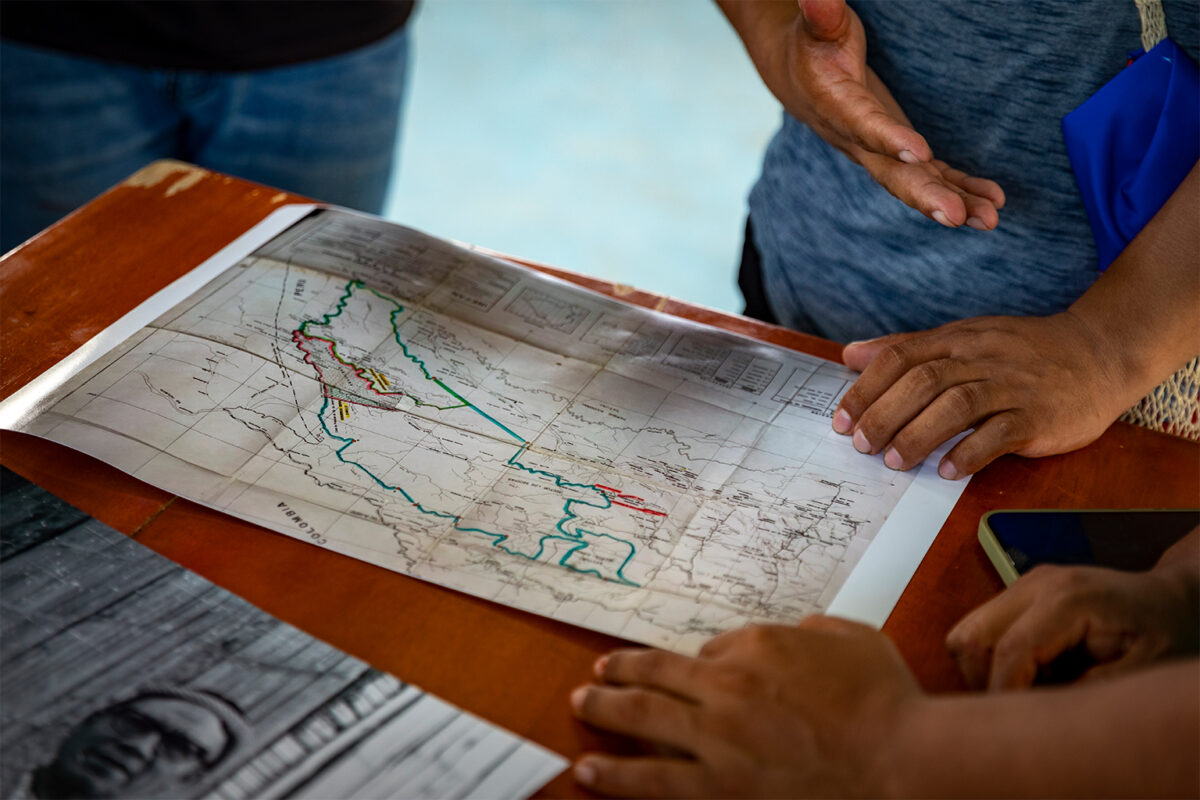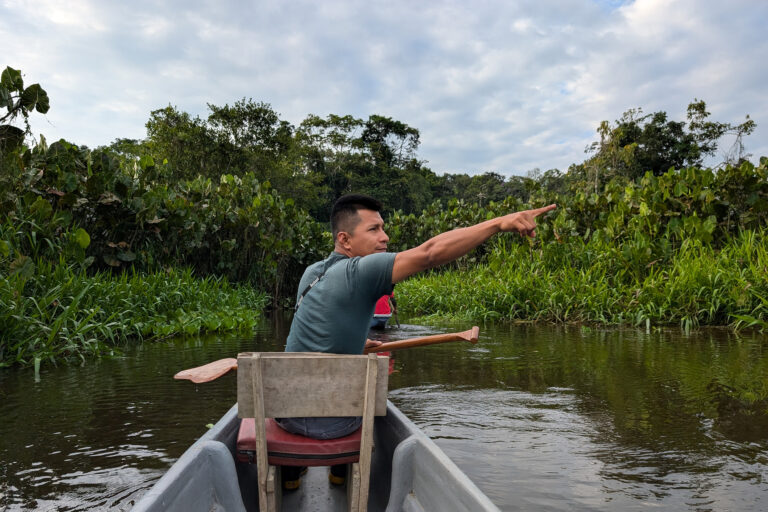- An average of three Indigenous Yanomami infants have died every week over the past four years in Brazil from diseases that are considered treatable, an investigation shows alongside shocking pictures.
- Experts say that decades-long invasions by illegal miners in the Yanomami Indigenous Territory and the dismantling of health care systems under the administration of Jair Bolsonaro have caused a spiral of malnutrition and disease within the Yanomami population.
- Official complaints from Indigenous rights advocates and allies from at least 2018 have been systematically ignored, leading to a worsening of the problems.
- Brazil’s new president, Luiz Inácio Lula da Silva, has called the crisis a genocide and vowed to tackle the problem with a series of immediate and long-term action plans.
At least 570 Indigenous Yanomami infants have died over the past four years from treatable diseases such as diarrhea and malaria, an average of three every week, highlighting the ongoing plight of one of Brazil’s most persecuted peoples.
The figures were published by environmental news outlet Sumaúma, showing a 29% increase in deaths of children under 5 years old compared to the previous four years. Alongside the data, Sumaúma also published photos of malnourished Yanomami children, shared by sources whose names weren’t revealed for safety reasons.
The report also found that six out of 10 Yanomami children under the age of 5 are malnourished, and in 2022, six children less than a year old died from causes typically preventable with access to health services or medicine.
Experts say the true figures are likely much higher. “Deaths and cases are underreported,” Fiona Watson, director of research and advocacy at Survival International, an NGO that champions Indigenous rights, told Mongabay by phone. “The number of deaths and cases of malaria and malnutrition will be much more,” added Watson, who has actively campaigned to raise awareness about the Yanomami crisis.
The Articulation of Indigenous Peoples of Brazil (APIB) published a picture of a malnourished child to call attention to the health crisis in the Yanomami territory.
The Yanomami Indigenous Territory straddles in the Northern Amazon Rainforest, between the states of Roraima and Amazonas, with an adjoining section in neighboring Venezuela. Brazil’s newly inaugurated president, Luiz Inácio Lula da Silva, visited Yanomami representatives in Boa Vista, the Roraima state capital, on Jan. 21 alongside the country’s first ever minister for Indigenous peoples, Sonia Guajajara, and the minister of health, Nísia Trindade.
“More than a humanitarian crisis, what I saw in Roraima was a genocide,” Lula tweeted. A task force of experts from Brasília and Boa Vista has now been convened to form an action plan to prevent further deaths within the Yanomami Indigenous Territory. “There will be no more genocides,” Lula said in another tweet.
https://twitter.com/LulaOficial/status/1617121512506511368
Covering an area the size of former colonial power Portugal, the Yanomami territory is home to more than 30,400 Indigenous people and is legally protected land, which means no commercial activity is allowed there. However, the region’s abundance of natural resources has attracted illegal gold miners for decades, wrecking the forest and exposing the Indigenous inhabitants to wave after wave of violence and disease.
A United Nations human rights review found that in 2013, child mortality in Brazil’s Indigenous areas was “double the national average and improvements in the indicators have been very slow.” It also revealed cases of Yanomami children being hospitalized from pneumonia, malnutrition and a lack of health care in 2016. Indigenous advocates say these problems worsened under the administration of Jair Bolsonaro, in office from 2019 to 2022, which saw an explosion of illegal mining and a breakdown in regional health care and federal support.
“On the one hand, there’s the advance of increasingly complex mining involved with organized crime, who have greater capacity for destruction and greater weapons,” Luis Ventura, assistant secretary at the Indigenist Missionary Council (CIMI), an advocacy group affiliated with the Catholic Church, told Mongabay by phone. “And on the other, the Bolsonaro government completely abandoned the health care policy for the Yanomami people.”
While serving as a congressman, Bolsonaro repeatedly tried to overturn the demarcation of the Yanomami Indigenous Territory, unsuccessfully.


The Articulation of Indigenous Peoples of Brazil (APIB), the country’s biggest Indigenous rights coalition, said in a statement that the “situation is part of a political project that sees in the extermination of Indigenous people the fastest way to boost the predatory extraction of natural goods from protected areas.”
Invasions by illegal miners in particular spread diseases such as malaria to the Indigenous populations and deprive the Yanomami of their food sources by contaminating rivers with mercury, a toxic metal liberally used in artisanal mining.
“When the Yanomami become ill with malaria, they can’t hunt or fish because they are too weak,” Watson said. “That’s what’s leading to these awful rates of malnutrition. They live in this amazingly rich, biodiverse forest. If it wasn’t for this man-made catastrophe, they would be able to feed themselves and not have malnutrition.”
The miners also hamper efforts by health workers to treat and prevent illnesses within the Yanomami communities, leading to a dearth of health care and medicines in several villages. “It’s lawless,” Watson said. “Health care workers get threatened by miners, who are forcing them to give them preferential treatment and give them the drugs.”
Reports of high levels of mercury in the water, a result of mining waste, have been flagged for years, threatening the Yanomami and their future generations.
“That’s another ticking time bomb because we’re going to be seeing birth defects and people with the impacts of mercury in their system and dying from it,” Watson said.
The situation isn’t new and “has been systematically denounced and documented by Indigenous organizations and allies from at least 2018,” said Ventura from CIMI. However, the complaints went unheard under Bolsonaro. According to a report by The Intercept Brazil, Hutukara, an Indigenous organization representing the Yanomami, reported criminal activity and humanitarian crisis 21 times to public bodies over two years during the Bolsonaro administration — all of which were ignored.
The Lula administration has declared the situation a “public health emergency of national importance.” Brazil’s Indigenous affairs agency, Funai, released a statement of measures it promised to take, including distributing 5,000 parcels of essential foods, the equivalent of 85 metric tons of food, and sending 200 cans of nutritional supplements for malnourished children, which the Brazilian Air Force have already started delivering to communities within the Yanomami territory. It also plans to establish a committee to address the lack of health assistance and create a center for emergency operations.
Experts have welcomed the promises.


“The plan starts correctly, with immediate help for the food issue and then the emergency restructuring of health care, because people in such a serious situation need medical follow-up,” Rogério do Pateo, a professor of anthropology at the Federal University of Minas Gerais, told Mongabay by phone. “Finally, we need a police operation and investigation to take out the invaders and prevent them from returning.”
Experts say the years of impunity under Bolsonaro must be reversed and that illegal miners must be evicted from the land and punished for crimes against both the Indigenous people and the environment.
“That’s the only thing that’s going to deter people in the future from doing this again,” Watson said.
Thousands of miners were expelled from the region in the 1990s after the land was demarcated in 1992, but many returned within a decade. Removing them again is possible but “it needs real political will, and the funds to carry it out,” according to an email statement from Survival International.
Flávio Dino, the new minister of justice and public security, said in a statement that he would open a police investigation into crimes in the Yanomami Indigenous Territory. “There are strong indications of genocide, which will be determined by the Federal Police,” he said in the statement.
The call for the investigation comes nearly 30 years after the massacre of 16 Yanomami individuals by illegal gold miners. Five gold miners were convicted of genocide two years later, in 1995.
Indigenous rights advocates say that changes won’t happen overnight, but see Lula’s promises as hopeful.
“He gave the opposite message to the previous government to go there himself,” Pateo said. “Lula really got off to a good start and he sent a message that the government was going to work in a coordinated way to reverse this severe situation.”
Banner image: President Luiz Inácio Lula da Silva visited an Indigenous hospital and the Indigenous health support house in Boa Vista, the capital of Roraima state, on Jan. 21. Image © Ricardo Stuckert/Palácio do Planalto/Agência Brasil.
FEEDBACK: Use this form to send a message to the author of this post. If you want to post a public comment, you can do that at the bottom of the page.
At 30, Brazil’s Yanomami reserve is beset by mining, malaria and mercury














